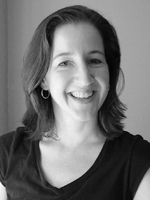Free to think and question and love
 What a book! Mary's story is so compelling, and I was always rooting for her to keep questioning, wondering, and, most of all, loving. The book also prompted me to revisit memories of my own experiences within the Catholic Church.
What a book! Mary's story is so compelling, and I was always rooting for her to keep questioning, wondering, and, most of all, loving. The book also prompted me to revisit memories of my own experiences within the Catholic Church.
I grew up vaguely Catholic. My parents didn’t take me to church, but I had very influential grandmother whose Catholicism was central to her self-identity. She insisted I go to "CCD" and instilled in me a twin reverence/fear regarding all the rules – and all the mystery too – of the Catholic Church. I remember her rushing me to finish my Special K one Sunday morning, her gaze nervously darting between the clock and my cereal bowl as she reminded me of the rule that you couldn't eat within an hour of communion because your stomach needed to be empty to receive Jesus Christ. That seemed both weird and magical to me, and I took it seriously. When I told her that I got through the last few minutes of (boring to me) mass by plastering the communion wafer against the roof of my mouth and then laboriously prying it off with my tongue was one of the very rare times she looked at me with anything but gentle adoration, and I felt shaken by the disapproval (and fear) in her eyes.
I never did talk to her about my disappointment at my own first communion rehearsal when we second graders, in shorts and sneakers instead of our beautiful white first communion dresses, were given real communion wafers. I was outraged, as it seemed that having a rehearsal wafer made our "first communion" the next day really the "second communion." I piped up and asked about this, and the older of the two priests basically told me to shut up. The younger priest took me aside and tried to explain what the difference was between the wafer that Friday night and the wafer Saturday morning during mass, when it really would become the body of Christ. Kind of him, but his whispering let me know that this kind of question was not to be openly asked and that I couldn't ask what was really on my mind, "What do you MEAN it turns into something else? What do you MEAN?"
My grandmother found peace, meaning, and comfort in the church, in the rightness of the Pope, the traditions, the stories, the rules, the way things are done. Her faith was palpable and something I leaned toward, but the combination of parents who had fled religion, stories my very literal mind struggled to absorb, and a teen experience with a manipulative charismatic youth group organization left me with disillusionment and skepticism that I just couldn't shake.
So as I read this book, I found myself wanting all the nuns who are currently finding their way within the Catholic Church to have what they love in the Church, the very real connection to the mysteries of life and the meaningful lives they've built. But I also want all the sisters to be free to think and question and give and receive human love. I like to think that in that great bookstore in the sky, my grandmother has access to An Unquenchable Thirst and that she's rooting for the sisters too.
...from Ellen Olson-Brown, M.Ed., a teacher, educational consultant, author of four children's books, aspiring yogi, and enthusiastic consumer of art and office supplies. Positive psychology, mindfulness, and the science of human flourishing are her current fascinations, and she loves supportively daring people to amaze themselves. Ellen lives in Groton, Massachusetts with her husband and twin sons. www.openstudiogroton.com

 Share Article
Share Article